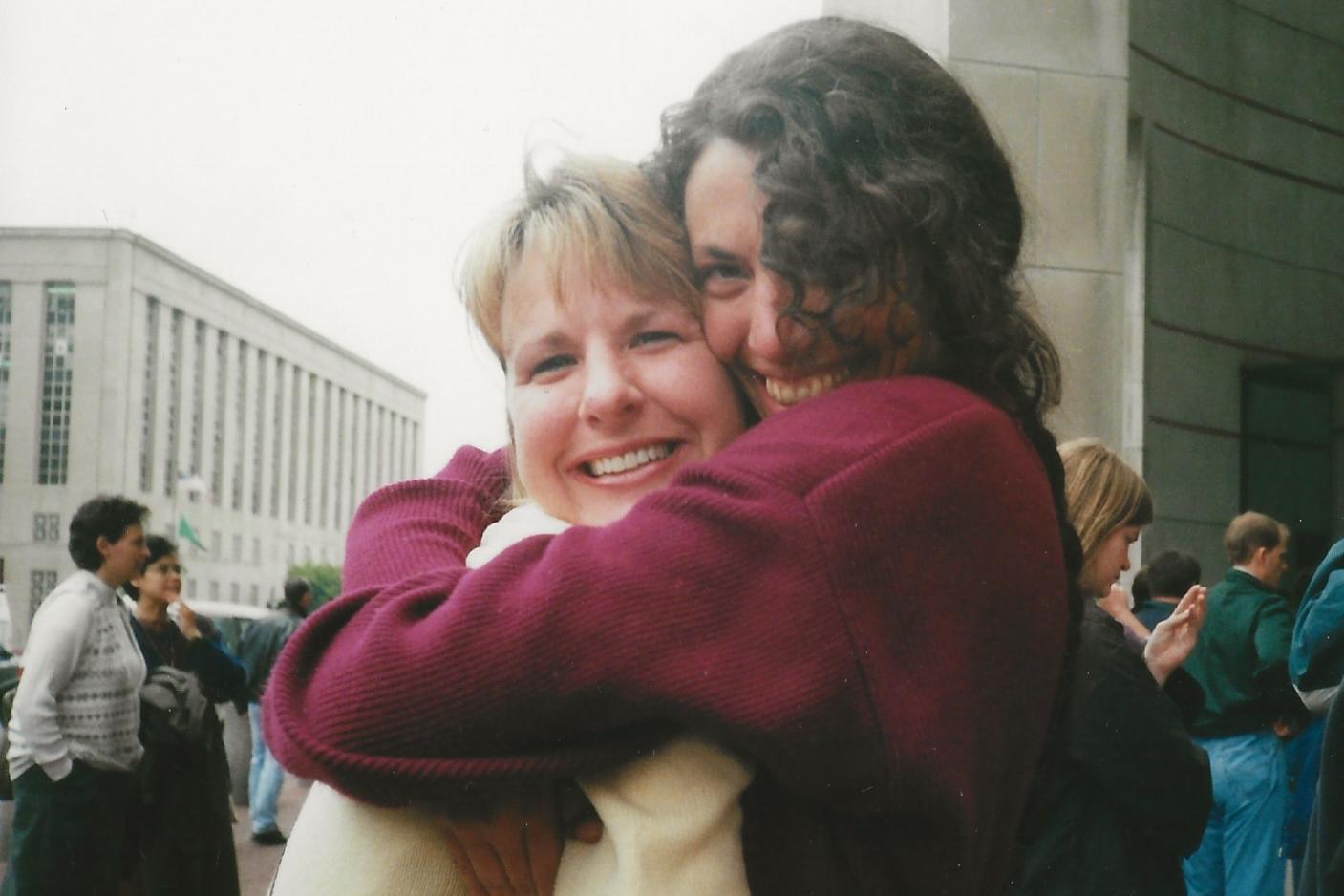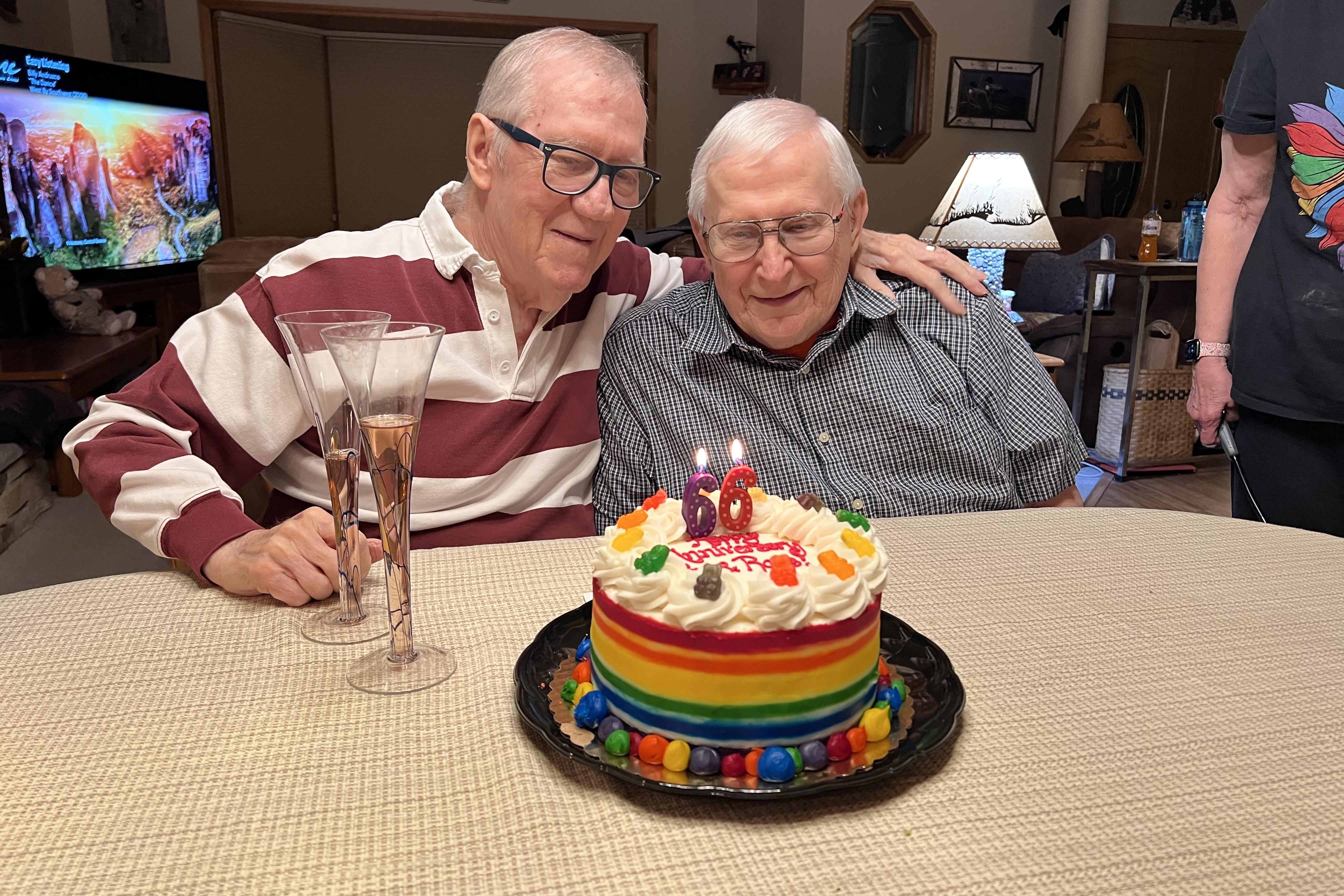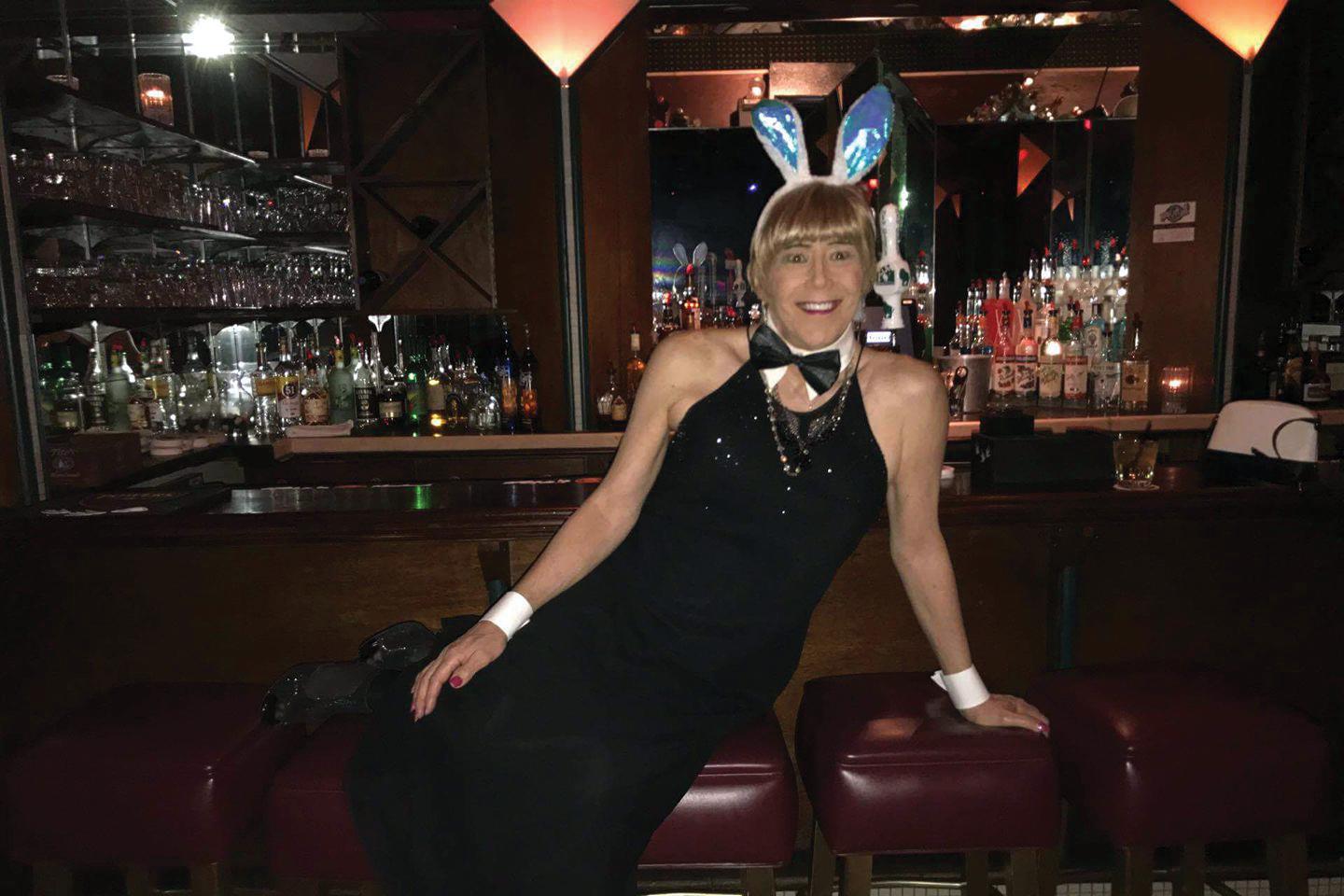
In Memoriam: Ginger Baier

“She was like the big sister of the trans community."
Ginger V. Baier, age 73, of Kendall, Wisconsin passed away unexpectedly on Sunday, April 14, 2024.
Her passing constitutes a devastating loss for her family and friends, as well as the trans community in Madison, Wisconsin. In the wake of her passing, this article hopes to honor her memory and contributions to the community, as well as her impact on those who knew her.
Ginger helped pave the way for transgender and queer acceptance in Wisconsin, starting with her early involvement in MATA, the Madison Area Transgender Association.
Steve Starkey, executive director of OUTReach LGBT Community Center, explains that MATA was one of the first publicly active transgender groups in the state of Wisconsin. At the inception of this group in the late 90s, many of its members were closeted or dealing with life challenges, making it difficult to find active leaders for the group.
“Ginger had that really outgoing personality and an automatic leadership quality about her,” according to Steve. “She was always outgoing and wanting to connect with other people.”
Although she began as an attendee, Ginger began serving as the support group facilitator and organizing events, which helped grow MATA. She provided MATA attendees with resources about finding doctors and medical assistance to help trans people during their transitions.
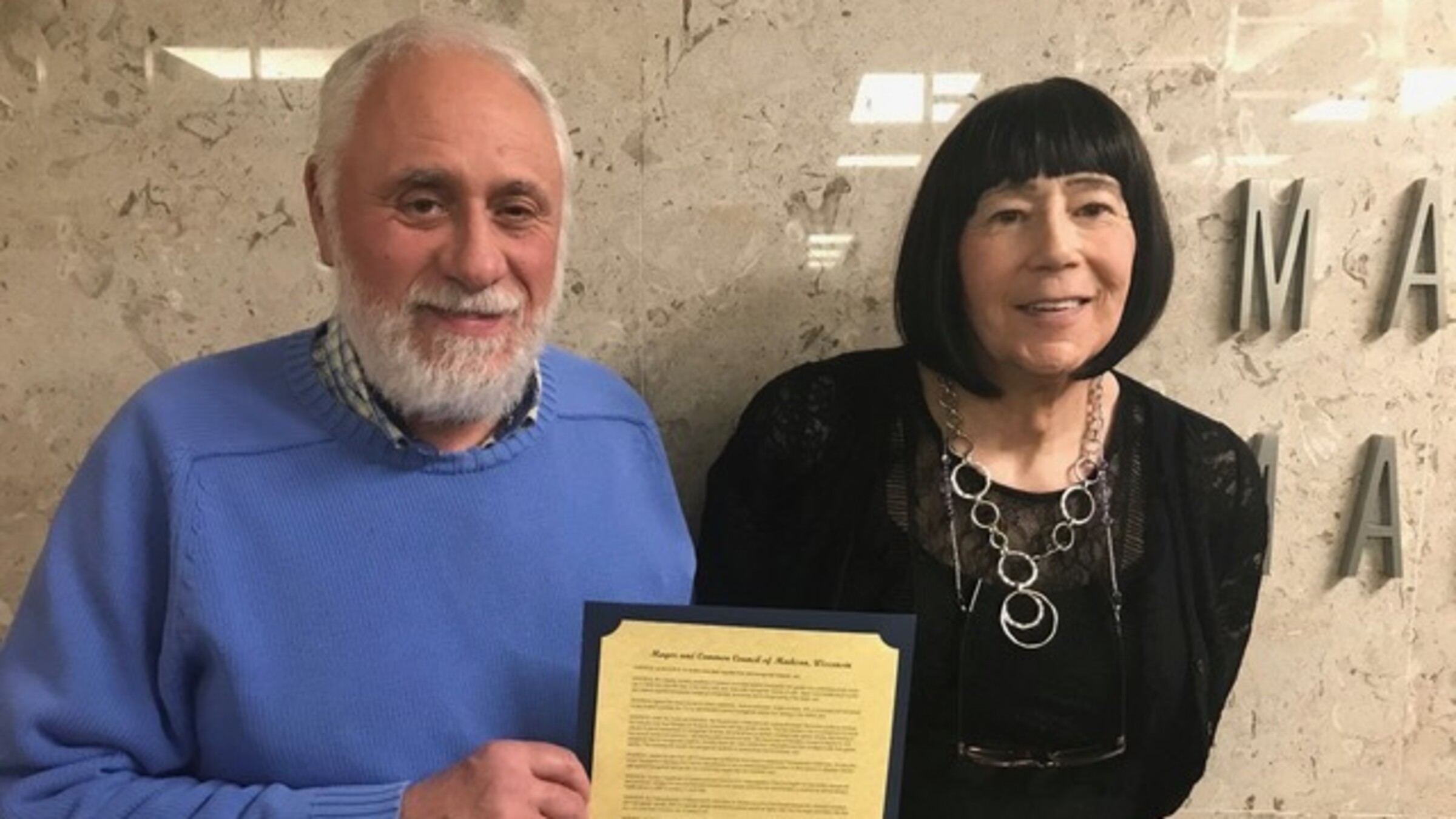 Steve Starker and Ginger Baier of the OUTReach LGBT Community Center
Steve Starker and Ginger Baier of the OUTReach LGBT Community Center
Ginger’s work and dedication to MATA’s cause is especially profound since it took her many years to accept her own identity before coming out.
“I had to come out or die,” Steve remembers Ginger saying. “I couldn’t live that life anymore. I couldn’t live in the closet, lead a double life anymore.” Her journey to accept herself made her an incredible support to others on similar paths.
Ginger believed strongly in the importance of unity in the LGBTQ+ community.
Steve says “[Ginger’s idea is that] we need to all work together, that gay, lesbian, bisexual people need to also work with nonbinary, transgender, and other queer people, so that we’re all one united front.” This attitude permeated her work with Outreach, as she led educational workshops to bring understanding about the queer community to diverse audiences.
“Ginger was a huge contributor to Outreach and MATA over a really long period of time,” says Steve. “[She] was always, even after she retired, a transgender activist and spokesperson for the community.”
Outside of MATA, Ginger was engaged in the Madison community to bring awareness and support to LGBTQ+ people. Darla remembers, “Ginger and I marched many times on the Capitol for trans rights.” Ginger’s efforts in training police departments and community members on non-discrimination were important, too, in improving conditions for trans Madisonians.
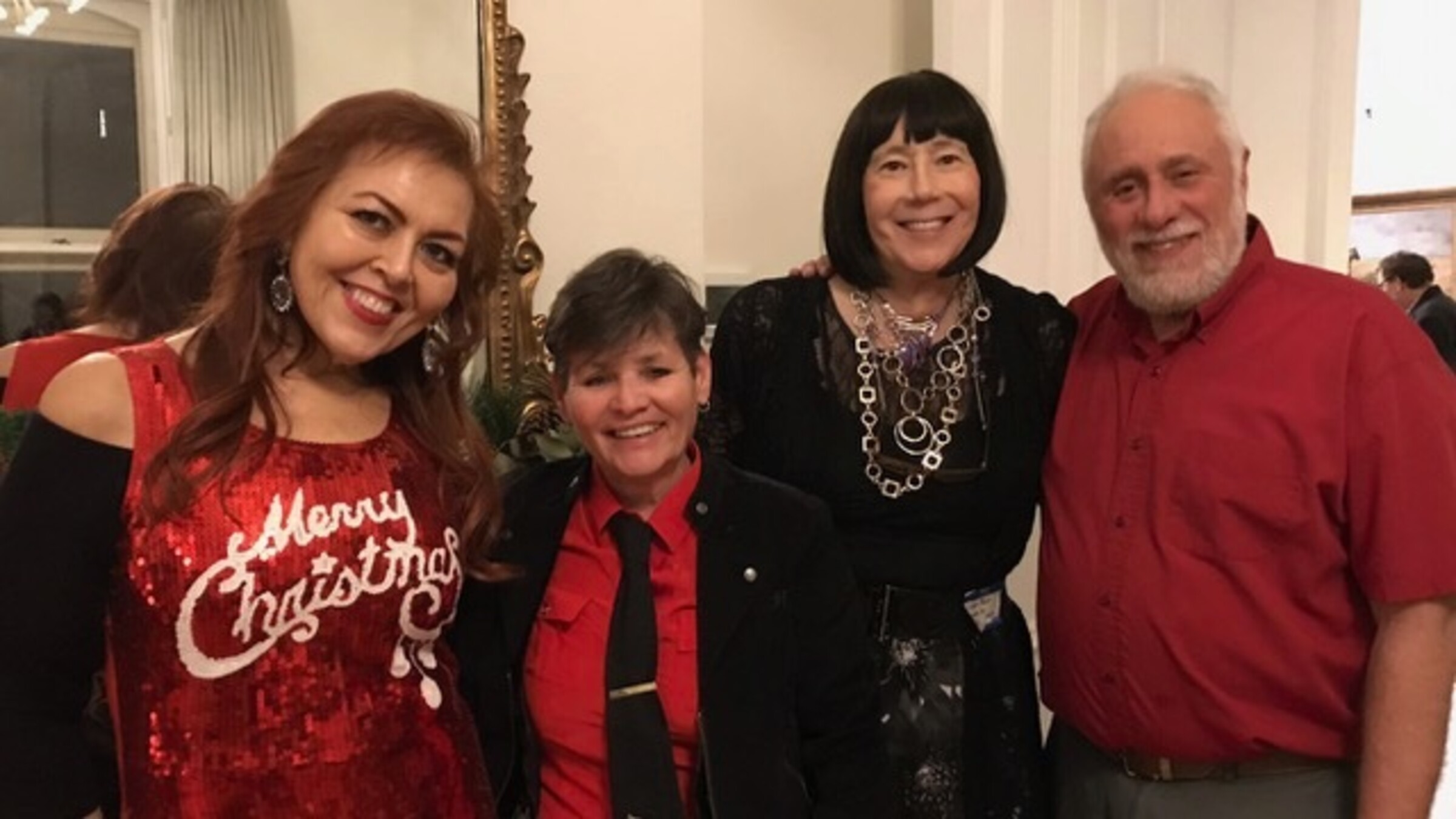 Ginger Baier
Ginger Baier
Beyond her career and organizational achievements, Ginger made a huge impact on those that knew her personally. Her tireless work for the community was driven by her love and care for the trans community and people in general.
Everyone that I spoke to about Ginger described her powerful energy and presence. Linda Lenzke described how, in 2021, she and Ginger led an in-service in the Belleville school district to educate teachers and administrators about the LGBTQ community. “Ginger and I divided up the presentation and I have to admit, Ginger stole the show. Not only because of her presence onstage, and her relaxed nature in talking to groups, but I think the teachers and librarians were most interested in her lived experience.” Ginger’s story was powerful, and she used it to better conditions for her community.
Close friend Darla Lannert says, “Ginger was very direct and told you exactly what she thought. You know that if you misgendered Ginger, she’d let you know. Or anybody else!” The two met at a MATA support group meeting in 2014, when Ginger was serving as the group facilitator.
Every Friday, a small group from the MATA support group consisting of Darla, Ginger, Lauren, and Corinne would go out dancing. “[Ginger] loved to dance,” says Darla. “I don’t think there was more than five minutes of her sitting in a dance club, ever.” After these nights out, the group would go to Perkins for an early breakfast full of laughs. “We were in our own world together. We were kind of inseparable,” remembers Darla.
Ginger’s vibrant energy was matched only by her outfits. Darla described her as a “Goth grandmother,” who always dressed in skirts, heels, and with copious accessories. “I never ever saw her in pants,” laughed Darla. “Never ever.” Steve echoes this sentiment, chuckling that “you’d never see her in blue jeans and a tee shirt.”
According to Linda, “she could dress to the 9s, accessorize with the best jewelry, best wigs. And at the same time, she could do plumbing in the toilet when it didn’t work. She was a very handy person, too.” At the 2020 Magic Pride Festival, Linda remembers Ginger wearing a dress and heels as she ran around to set up tents and booths in the muddy grass.
Ultimately, Ginger lived a life being comfortable sharing her authentic self with the world, and people took notice.
“There was no way Ginger was anything but Ginger,” says Darla. She was family-oriented, polyamorous, queer, and exuberant, and her comfort in her own skin allowed people around her to express themselves more freely. Ginger’s commitment to her own authenticity inspired others to do the same in their own lives. Ginger was able to live a life capturing the true spirit of Pride: living out and proud.
“She was like the big sister of the trans community."
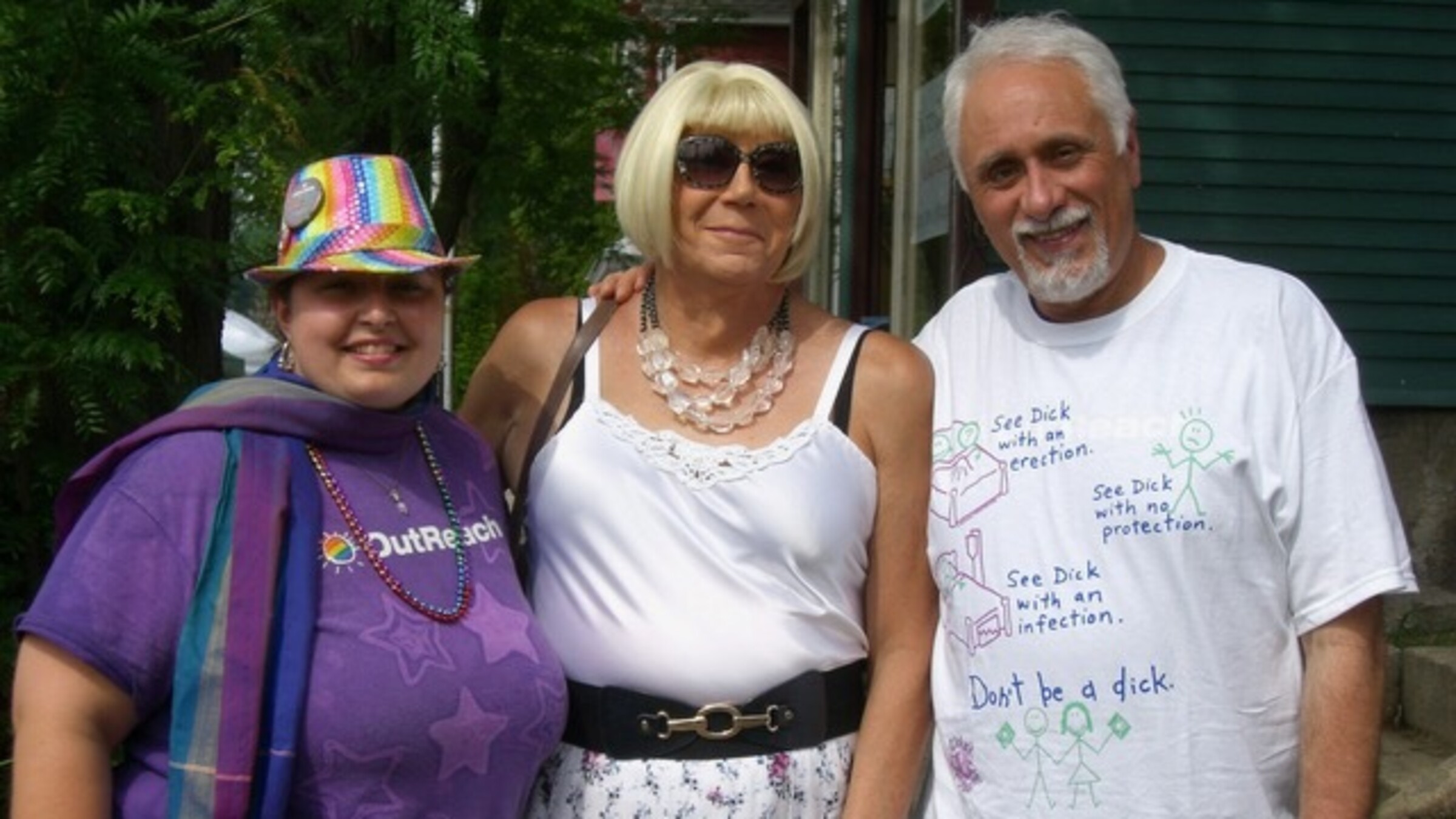 Ginger Baier
Ginger Baier
recent blog posts
April 06, 2025 | Michail Takach
Camille Farrington & Vicki Shaffer: standing up for students
March 31, 2025 | Amy Luettgen
March 29, 2025 | Michail Takach
The concept for this web site was envisioned by Don Schwamb in 2003, and over the next 15 years, he was the sole researcher, programmer and primary contributor, bearing all costs for hosting the web site personally.
